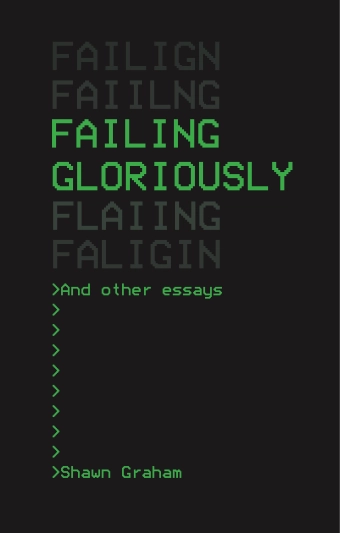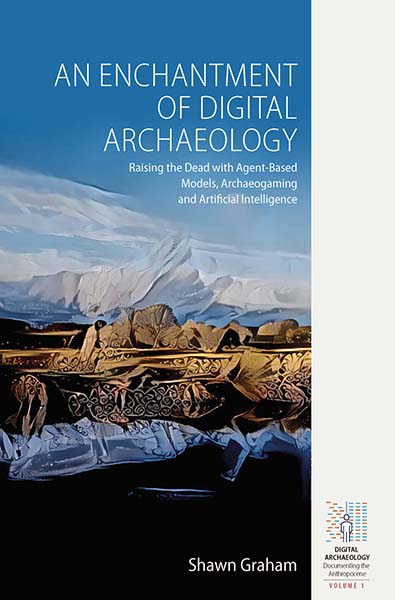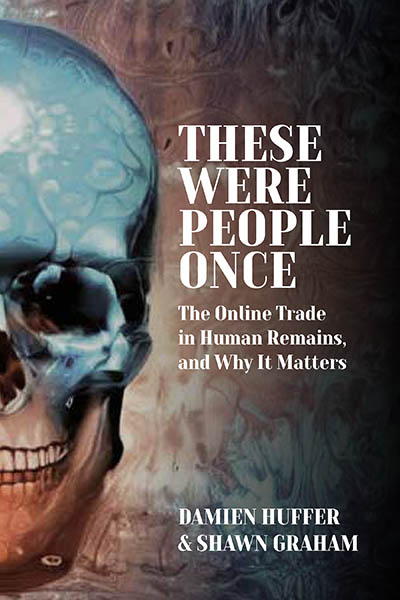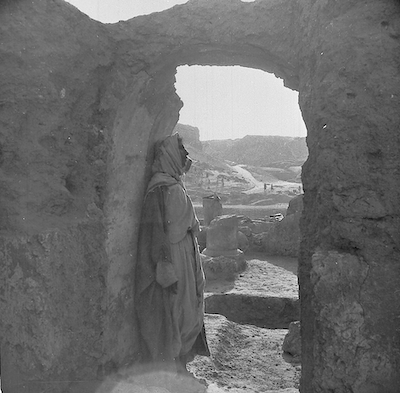Shawn M. Graham, PhD
Dr. Shawn Graham is a digital archaeologist and Full Professor in the Department of History at Carleton University in Ottawa, Canada. He is also the Programme Coordinator for the MA specialization in Digital Humanities. He founded and edits the open access journal Epoiesen: A Journal for Creative Engagement in History and Archaeology.
Education
University of Reading
Ph.D. Archaeology | 2002
University of Reading
M.A. City of Rome | 1998
Wilfrid Laurier University
B.A. Hons Archaeology | 1997
Research & Administration
Currently, Prof. Graham is the Coordinator for the MA Specialization in Digital Humanities. The DH Specialization received a $CAD 2.2m gift to implement the StudioDH initiative, and he is eager to support new students in the program. Get in touch!
His research with his collaborator Damien Huffer used neural networks and computer vision to explore the online trade in human remains (The Bone Trade Project). As part of the Computational Research in the Ancient Near East (CRANE) Project from the University of Toronto, he has been exploring generative adversarial networks (before 'AI' ate the world) and archaeological photography. With Dr. Donna Yates of the University of Maastricht, he is exploring knowledge graph embedding models of the antiquities trade (The New Organigram Project). He has collaborated with Justin Walsh (Chapman University) and Alice Gorman on the International Space Station Archaeological Project, designing the analytical tools to conduct the first archaeology _in space!_
His work has been featured in WIRED Magazine, The Washington Post, The New York Times, and the Ottawa Citizen. He has frequently been interviewed concerning the human remains trade as new criminal cases come to light.
In 2019, he won the Archaeological Institute of America's Award for Outstanding Work in Digital Archaeology for leading the creation of the 'Open Digital Archaeology Textbook Environment', O-DATE.
The X-Lab

The XLab – The Cultural Heritage Informatics Collaboratory – represents both a space and a series of relationships within and without the University. It was created thanks to a Canadian Foundation for Innovation Grant through the John R. Evans Leaders Fund. The XLab is led by Graham and Laura Banducci, who envision it as a kind of transdisciplinary 'skunkworks' for fostering encounters with and between cultural heritage and digital media and computation. As a skunkworks, or a space for trying non-traditional or imaginative new solutions, it aims to bring together tenacious tinkerers, who are willing to experiment, to wonder, to try, and to iterate – to try, try again.
The XLab is always interested in collaborators.
Books
Graham has published several works that range from archaeological investigations to more philosophical ruminations on what it means to 'fail gloriously' in the digital humanities.

Ex Figlinis
The growth of the city of Rome was dependent on its ability to exploit successfully the human and natural resources of its hinterland. This study examines the way the Tiber Valley functioned in terms of its economic and social geography, as evidenced by the organisation and dynamics of the brick industry.
Read on Humanities Commons
Exploring Big Historical Data
Written with Ian Milligan and Scott Weingart (1st edition) and Kim Martin (2nd edition). This pioneering book describes and demonstrates the ways these data can be explored to construct cultural heritage knowledge.
Find on WorldCat
Failing Gloriously
Please, you gotta help me. I've nuked the university. Failing Gloriously and Other Essays documents Shawn Graham's odyssey through the digital humanities and digital archaeology against the backdrop of the 21st-century university.
Download PDF
An Enchantment of Digital Archaeology
The use of computation in archaeology is a kind of magic, a way of heightening the archaeological imagination. This volume explores this spectrum in the context of Roman archaeology.
Find on WorldCat
These Were People Once
Written with Damien Huffer. People buy and sell human remains online. Most of this trade these days is over social media. In a study of this 'bone trade', the authors review and use a variety of methods drawn from the digital humanities.
Find on WorldCatArticles
Here are a few of his favorite articles; for more see his Google Scholar profile.
From the Organigram Project
Reputation laundering and museum collections: patterns, priorities, provenance, and hidden crime
Donna Yates and Shawn Graham (2024) International Journal of Heritage Studies, 30:2, 145-164.
Relationship prediction in a knowledge graph embedding model of the illicit antiquities trade
Shawn Graham, Donna Yates, Ahmed El-Roby, Chantal Brousseau, Jonah Ellens, and Callum McDermott (2023) Advances in Archaeological Practice, 11:2, 126-138.
DOI: 10.1017/aap.2023.1
From the Bone Trade Project
Reproducibility, Replicability, and REvisiting the Insta-Dead and the Human Remains Trade
Shawn Graham and Damien Huffer (2020) Internet Archaeology, 55.
DOI: 10.11141/ia.55.11
From the Computational Creativity Project
Listening to Dura Europos: An Experiment in Archaeological Image Sonification
Shawn Graham and Jaime Simons. Internet Archaeology 56.
DOI: 10.11141/ia.56

Listen to Dura Europos: Man standing in doorway of block B2 at Dura Europos. Courtesy Yale University Art Gallery, Dura-Europos Collection.
International Space Station Archaeological Project
The Sampling Quadrangle Assemblages Research Experiment (SQuARE) on the International Space Station
Walsh, J., Graham, S., Gorman, A. C., Brousseau, C., & Abdullah, S. (2024, February 19). Report 1: Squares 03 and 05.
Courses
Graham's teaching cycles through the following courses, with two courses in particular being the anchors for what's on offer: HIST5706a is offered every other year; HIST3814o is offered in the early summer term. His teaching is anchored in his research, and in his committments to the public history and digital humanities programmes at Carleton University.
HIST1900c
The History of the Internet. A broad survey that takes in a lot of the prehistory of the Internet as well.
HIST3000a
Introduction to Digital Archaeology. An asynchronous online course wherein students are exposed to the stages of digital archaeological research through the study of a local cemetery's gravestones.
HIST3812
Playful Engagement with History. What do videogames and theories of play teach us about writing history?
HIST3814o
Crafting Digital History. An asynchronous online course meant to equip the student with the necessary digital literacies to do digital research in history.
HIST4805a
Senior Seminar, connected to his latest research interests. In 2024/25 this is 'History and/of Artificial Intelligence'. The 2018-19 exploration of Bad Archaeology is here.
HIST4916a
DH + Museums. An exploration of dh methods for small museums. Originally run just as the pandemic hit.
HIST5706a
Digital History for Public Historians, 2021 - a 'digital history choose your own adventure'. Asynchronous online, with a choose your own adventure syllabus.
